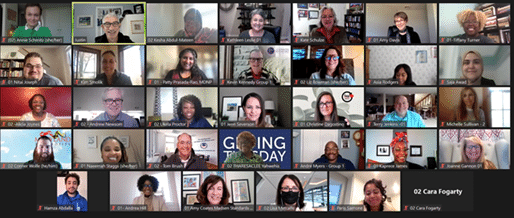

Advocacy efforts are front and center in these challenging times. For my colleagues who focus on advocacy efforts, 2020 has been a year with literally no downtime. I am grateful to have the opportunity to work in the midst of folks that are dedicated to the Standards for Excellence principle: “working independently and in partnership, nonprofits should strive to influence public policies that affect the organization’s ability to achieve its mission.” Things seem to be moving quickly on so many fronts all at the same time. Now is the time to reflect upon your own organization’s advocacy policy.
The Standards for Excellence: An Ethics and Accountability Code for the Nonprofit Sector encourages each nonprofit to “have a written, board-approved policy on advocacy defining the process by which the organization determines positions on specific issues.” A policy on advocacy or public policy should outline a process for making decisions. It should also define criteria employed to determine whether different public policy issues fall within the organization’s mission and purview. The advocacy policy should set up clear roles and responsibilities for the staff (which may specifically name staff positions like the executive director, external relations director, and/or public policy director), the board of directors (which may include specific committees), and the organization’s membership (if applicable). Factors to consider in deciding how and when to take policy positions should include the organization’s mission, the impact of policies, the consensus around decision-making, credibility, and flexibility. Like other organizational policies, the advocacy policy should be approved by the organization’s board of directors.
Of course, your advocacy policy should also indicate that all of your activities will remain strictly nonpartisan, meaning that you will refrain from efforts related to endorsing candidates or political parties.
For more information on how to develop an advocacy policy for your nonprofit, we encourage you to check out the Standards for Excellence educational resource packet, Advancing the Mission through Public Policy which includes: a discussion on the fact that advocacy and lobbying are legal, definitions of key terms like advocacy and lobbying, allowable lobbying activity, registration and disclosure of lobbying activity. Sample policies on advocacy and public policy are provided as well.
This educational resource packet and the full series of all packets – including sample policies, tools, and model procedures to help nonprofits achieve best practices in their governance and management – can be accessed by contacting a Licensed Standards for Excellence replication partner, one of the over 150 Standards for Excellence Licensed Consultants, or by becoming a member of the Standards for Excellence Institute.



